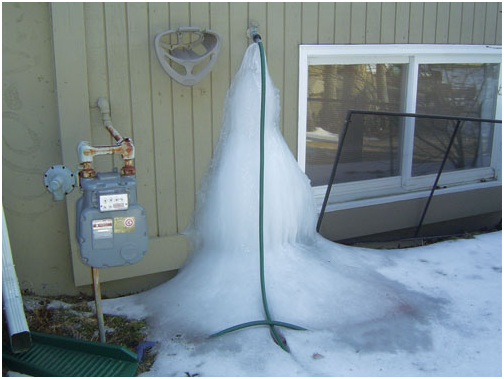5 Common Causes of Household Water Leaks You Need to Pay Attention To
Did you know that water damage in a home is the second most filed claim in the United States?
Yes, according to water damage Austin service company, an average claim on residential insurance for a broken pipe could be well over $10,000.
Exactly which leaks are we talking about? Dripping faucets, leaking toilet, leaking roof, burst pipes; you name it.
Some leaks will be immediately detectable, while others will go undetected, adding hundreds of dollars to your water bill in the process.
So, here’s what you need to know about factors that cause some of the most common household water leaks.
1. General Wear and Tear
Nothing lasts forever. So, regardless of its quality, do not expect your plumbing to hold up as well as it did when new.
Components are bound to deteriorate with time, thereby requiring you to either replace the faulty piece of perform a complete overhaul of the system.
While you cannot stop normal wear and tear from taking place, it is possible to monitor your plumbing system so that you can arrest a problem as soon as it occurs.
For this to be possible, you would have to conduct regular inspections of your plumbing system, especially if you’ve been living in your home for a good number of years.
Corrosion also counts as normal wear and tear that’s likely to happen in your plumbing system. Rust may eat away at pipes, thereby compromising their efficiency.
To check for corroded pipes, be on the lookout for any discoloration or warping of your pipes.
Once you notice any of the above conditions, call in a competent plumber to assess the situation. Keep in mind that you might have to replace the older pipes with newer ones.
2. Clogged Lines
If there is a leak in the basement, then perhaps you should start by checking your gutters.
When your gutters that have leaves and debris, water that’s unable to flow through will instead flow over the sides of the gutters.
When this happens, the water will seep into the foundation then make its way to your basement.
Clogged gutters will affect the downspouts as well. Resulting in leaks against the building wall as well as in the foundation.
To avoid having to deal with clogged gutters, make sure you regularly inspect for chocked downspouts and check for leaks in the basement as well.
Additionally, ensure that all the downspout segments are securely connected and that they are designed to drain water away from the foundation.
Besides the gutters, clogging can also occur in your HVAC equipment.
If the central air conditioner drain line clogs, the condensate pan will overflow, leading to water damage.
When it comes to leaks emanating from HVAC equipment, you should be checking the refrigerant, condensate pump, and drain line for any leaks. Perhaps you may even consider installing a safety overflow switch for enhanced protection.
3. Excess Water Pressure
Everyone desires to have high water pressure in their home, but like with most things, high water pressure can end up being too much of a good thing.
Pipes and faucets are often designed to withstand up to a specific amount of water pressure, which is usually 40 to 60 PSI.
When the water pressure exceeds these recommended levels, or if it is irregular, it can put a strain on your pipes, fixtures, and appliances.
A strain on the pipes would then result in pinhole raptures; that can subsequently become major raptures capable of flooding your home.
You can tell your water pressure if off if the pipes regularly make a loud banging sound or if the water blasts out of the faucets.
Should you feel that the water pressure in your home appears to be at a worrying level, please bring in a professional to measure the pressure and regulate it accordingly.
4. Extreme Temperature Changes
In the case of an underground water line, changes in temperature will affect the soil surrounding the pipe.
This means that if the air temperature is below the freezing point, the ground will freeze as well. This frozen state places stress on an underground water pipe,
Just as well, when the temperatures rise as it gets warmer, the ground tends to shift, once again resulting in cracked or broken pipes.
Temperature changes could cause leaks in other ways too.
When water freezes inside a pipe, the water will expand, leading the pipe to expand as well, making it likely to crack or break.
To prevent water leaks resulting from drastic changes in temperature, make sure your lagging is well in place and identify where your stopcock is for easy turning on and off.
5. Improper Sealing
Your roof’s valleys could be improperly sealed.
There could be holes in the mortared joints of your chimney.
There could be cracks on your flat roof.
All these scenarios can result in a leaking roof; and a leaking ceiling as well.
You want to make sure your roof is well sealed to prevent rain and other weather elements from making their way into your home.
In the case of minor cracks, perhaps consider applying a roof sealant to the affected area.
Apart from improper sealing, seals that were correctly put in place could now be broken, so be on the lookout for that as well.
Besides the roof, broken seals could also be found on appliances such as dishwashers and washing machines.
Such a seal would break or tear with age, therefore becoming unable to contain water within the appliance.




